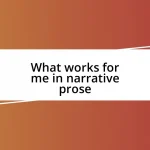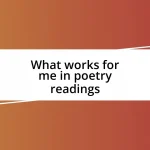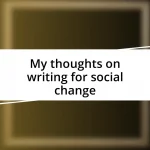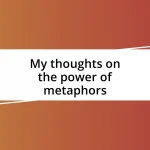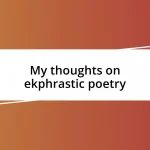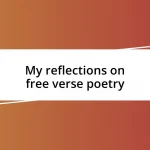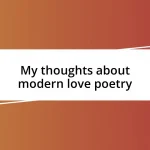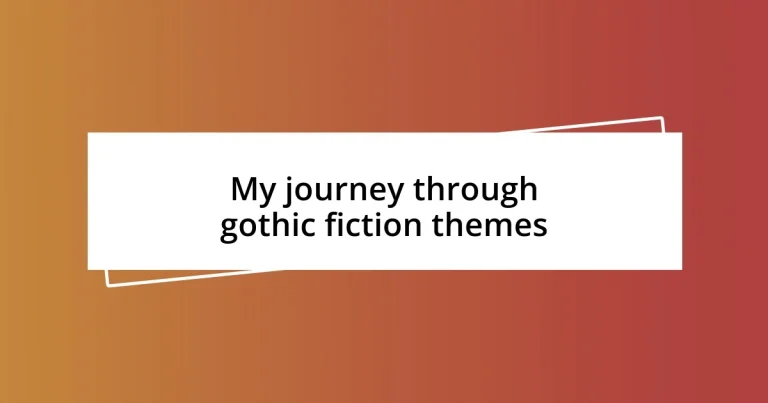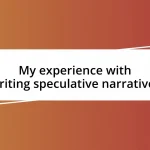Key takeaways:
- Gothic fiction explores themes of isolation, the supernatural, and the duality of human nature, reflecting deep psychological struggles.
- Key authors, including Edgar Allan Poe, Mary Shelley, and Bram Stoker, profoundly shape Gothic literature by addressing moral complexities, the consequences of scientific ambition, and societal anxieties.
- Personal experiences with Gothic novels highlight their influence on understanding fear, the significance of setting, and the weight of familial expectations, encouraging self-reflection and rebellion against societal norms.
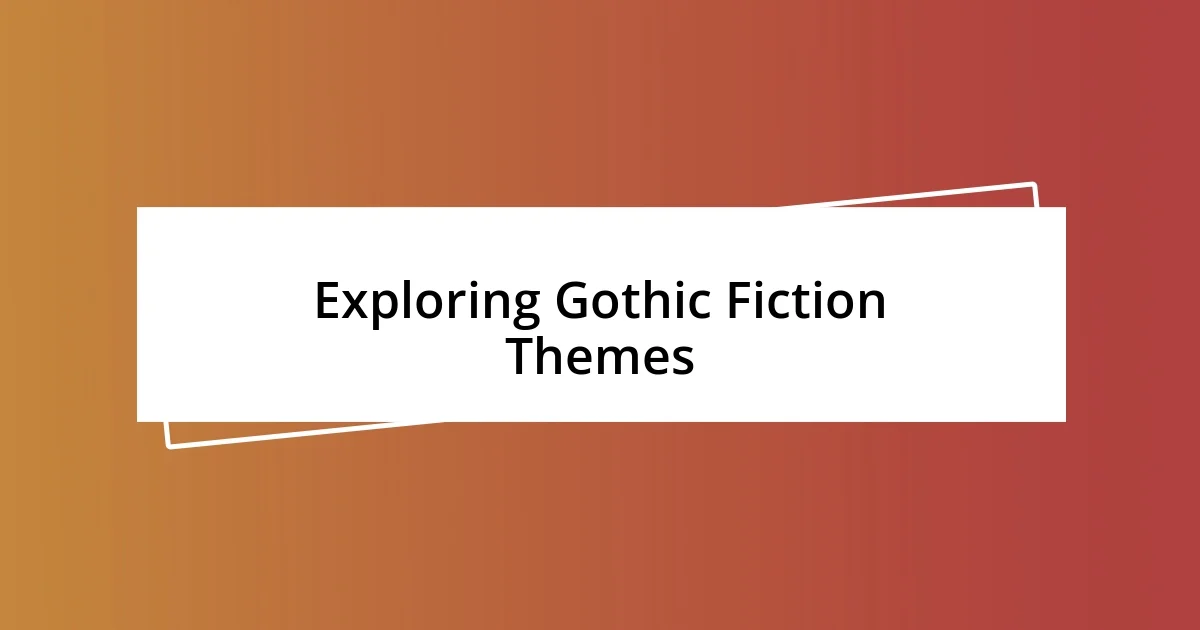
Exploring Gothic Fiction Themes
Gothic fiction often grapples with the theme of isolation, both physical and psychological. I remember reading Wuthering Heights for the first time and feeling an eerie chill as Heathcliff roamed the moors, haunted by his past. This sense of being trapped, whether in a crumbling mansion or one’s own tormenting thoughts, resonates deeply with many of us, doesn’t it?
Another prevalent theme is the supernatural, which always intrigued me. The first time I encountered ghosts in The Haunting of Hill House, I was mesmerized—how could something so otherworldly evoke such intense emotions? This exploration of fear and the unknown invites readers to confront their own curiosities about what lies beyond the veil, prompting questions about life, death, and everything in between.
Moreover, the duality of human nature is a critical aspect of Gothic fiction. I often find myself reflecting on characters with dark secrets and the moral complexities they embody. Isn’t it fascinating how Gothic narratives reveal the struggles between good and evil within us? These intricate layers not only challenge our understanding of morality but also mirror the conflicts we face in our own lives.
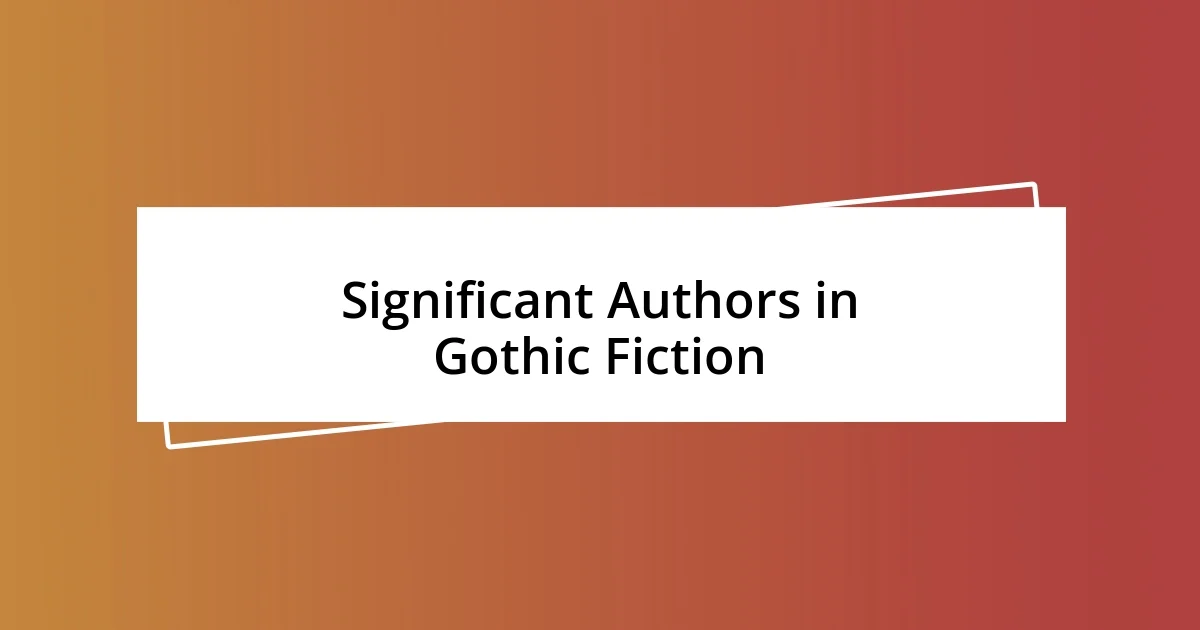
Significant Authors in Gothic Fiction
One cannot discuss significant authors in Gothic fiction without mentioning Edgar Allan Poe. His works are like a window into the darker corners of the human psyche, as I discovered while reading The Tell-Tale Heart. The way Poe crafts tension and psychological depth made me realize how easily we can spiral into madness when grappling with guilt and fear. The chilling atmosphere he creates keeps readers on edge, don’t you think?
Next on the list is Mary Shelley, whose Frankenstein redefined the boundaries of Gothic literature. My first encounter with Victor Frankenstein’s tragic ambition left me pondering the moral implications of creation. It was like a mirror reflecting our own scientific pursuits—what happens when we play God? Shelley’s exploration of isolation and longing resonates with anyone who’s ever felt misunderstood or disconnected from society.
Finally, we have Bram Stoker, whose iconic Dracula seamlessly blends horror with eroticism. The moment I turned the last page, I was struck by the complex portrayal of desire and fear. Stoker’s ability to weave in themes of cultural anxieties regarding sexuality and immigration was eye-opening. His characters embody a struggle that feels alarmingly relevant even today, wouldn’t you agree?
| Author | Notable Work |
|---|---|
| Edgar Allan Poe | The Tell-Tale Heart |
| Mary Shelley | Frankenstein |
| Bram Stoker | Dracula |
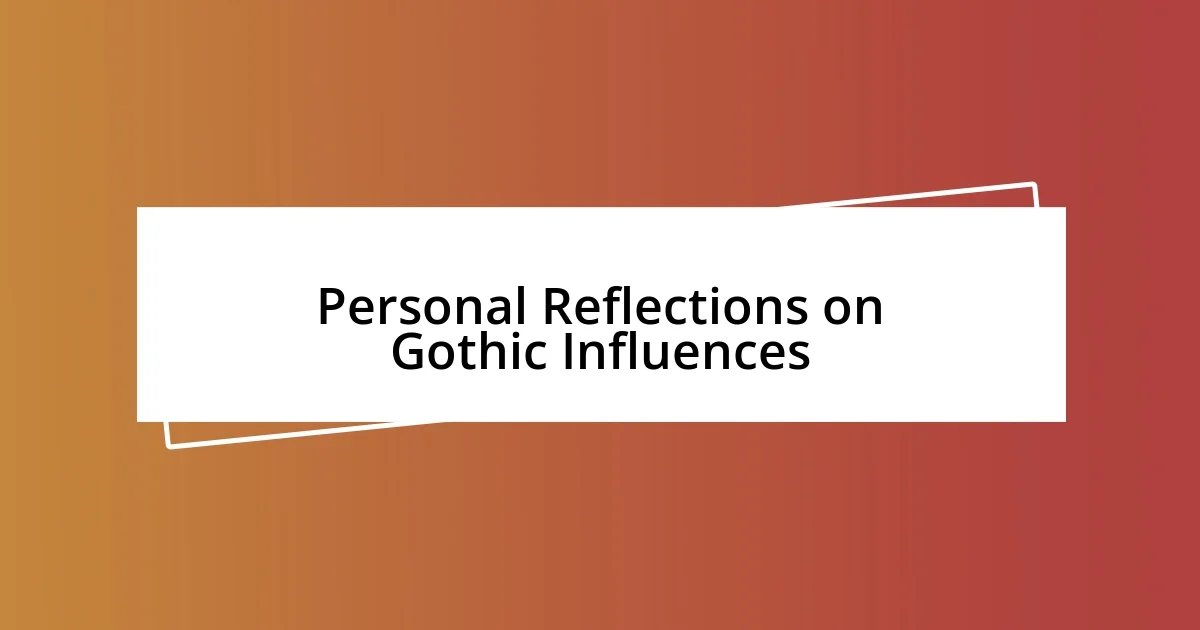
Personal Reflections on Gothic Influences
Every time I dive into a Gothic novel, I’m reminded of how these stories have shaped my understanding of fear and intrigue. For instance, reading The Picture of Dorian Gray stirred a whirlwind of emotions in me. It wasn’t just the notion of beauty and its curse that fascinated me, but how it pushed me to consider what we hide beneath our surface—what are the true costs of our desires?
I also find myself reflecting on the sense of place in Gothic fiction. I can still vividly recall visiting a dilapidated castle during a rainy day; the atmosphere felt straight out of a novel! The cold stone walls seemed to whisper secrets of despair and tragedy—it’s experiences like these that echo the powerful settings I read about. Doesn’t it make you wonder how much our environments influence our state of mind?
Additionally, the oppressive weight of familial expectation in Gothic narratives resonates deeply with me. In Jane Eyre, I related profoundly to Jane’s struggles against societal pressures and her quest for autonomy. I remember feeling a surge of relief when she finally chose her own path, as if encouraging me to break free from my own constraints. Have you ever felt compelled to challenge the expectations placed on you? Those moments of rebellion are often the most liberating, aren’t they?

